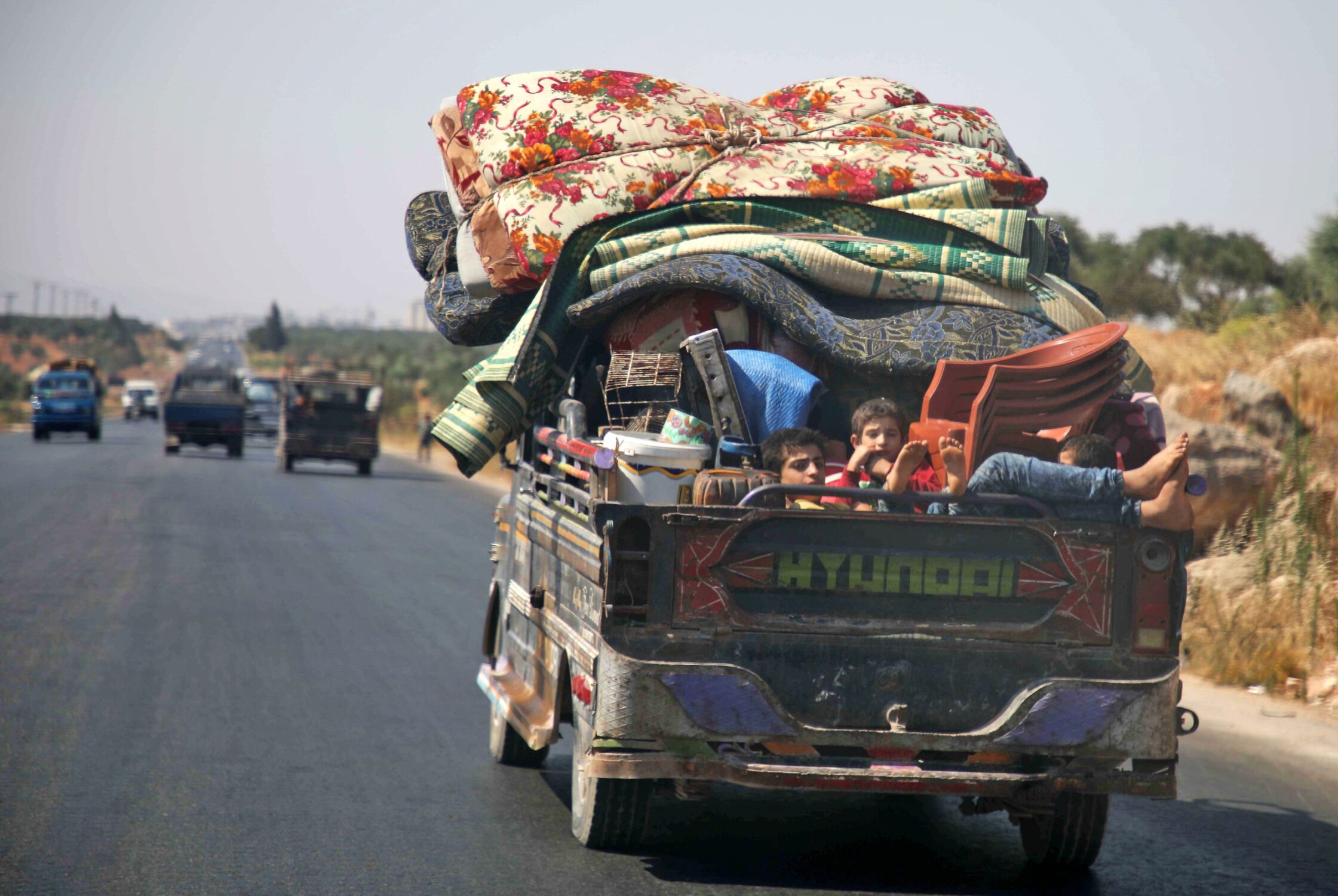Short-lived Ceasefire Displaces Syrians Yet Again

Soon after the ceasefire went into effect in the last rebel-held enclave in northwest Syria on August 1, hundreds of hopeful families started returning to their cities and towns in southern Idlib and surrounding areas, according to the Response Coordination Group, a monitoring group.
The truce did not end ground fighting and shelling, but it largely halted the unremitting aerial bombing that has pummeled the area since late April, giving some respite to civilians. Yet, on August 5, only four days after it was declared, the ceasefire fell apart, and Russian airstrikes and Syrian regime barrel bombs resumed. Since, thousands, including people who had just returned to their villages, have again set out on the all too common journey in search of safety.
The regime-led military campaign, backed by Russia, has claimed the lives of more than 500 civilians, injured thousands more, and displaced nearly half a million people in the past three months. Displacement has overstretched the area’s limited resources and capacities. The northwest is home to an estimated 3 million people, nearly half of whom are displaced from other parts of the country, and 2 million of whom depend on humanitarian assistance. Humanitarian organizations are struggling to respond to overwhelming needs. People displaced by the offensive live in harsh conditions and lack the most basic needs. Water is short, healthcare when available is inadequate, space is limited, thousands are reportedly living in the open air under olive trees, and latrines are scarce and unsanitary.
An estimated 11,000 hopeful people started returning to their hometowns during the ceasefire, despite concerns that the cessation of hostilities might not last. Some didn’t even make it to their destination. Now many can’t go back to the same apartments they left less than a week ago, as new families have moved in. Others are still looking to stay in camps and informal settlements, although most most are over capacity.
In the face of unrelenting hardship in displacement, people were willing to take the risk, knowing that conditions back home might not be less harsh.
In the face of unrelenting hardship in displacement, people were willing to take the risk, knowing that conditions back home might not be less harsh. Many returned to ghost towns and cities where entire neighborhoods are in ruin, the smell of death is everywhere, bodies might still be buried under the rubble, and infrastructure and services have been left decimated. According to the UN, seventeen villages are almost completely destroyed and emptied from their population in the region.
Yet, there is a reason why some chose return over displacement. “Displacement is the worst that could happen to you,” said a shopkeeper who fled bombardment in northern Hama. “It takes away your dignity, it robs your identity, it makes you forget who you are.”
The short reprieve under these painful circumstances didn’t last more than a few days. The renewed offensive forced civilians to flee once again, some for the third, fourth, or fifth time. The Syrian conflict, now in its ninth year, has created the largest forcibly displaced population in the world, uprooting more than half the country’s pre-war population.
The Syrian conflict, now in its ninth year, has created the largest forcibly displaced population in the world, uprooting more than half the country’s pre-war population.
“I am hosting three families who, two days after returning to their village, fled again,” said a relief worker in Idlib. “They lost their apartment, and other landlords are asking for too much rent. For them, staying in a camp is the most dreadful decision. Unfortunately, they might have no choice.”
Now, the chances for renewed negotiations to stop the killing and destruction in the northwest have become dimmer. The establishment of a demilitarized zone—considering developments over the last three months and the distrust that runs so deep among all parties—would require that both sides to the conflict, rebel groups and Syrian troops, withdraw from the frontlines. However, warring parties have instead opted for a tug-of-war, which would require miraculous effort to prevent a “humanitarian nightmare unlike anything we have seen this century.”
Predictably, anger and resentment are widespread among civilians, sentiments that the words of a doctor in Idlib express so powerfully: “This is akin to a psychological war. We would have been better if the ceasefire never happened. Why give people this glimpse of hope! Why make us think that the world cares about us when the truth is that even if 10,000 or 100,000 more Syrians die in Idlib, no one is going to do anything to stop it!” he said.